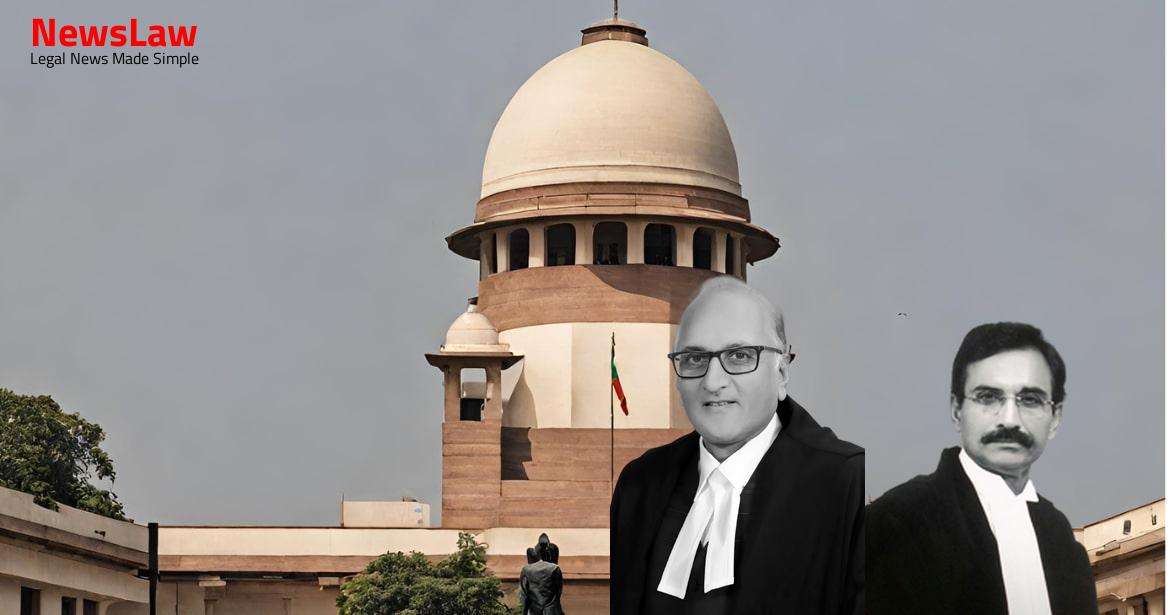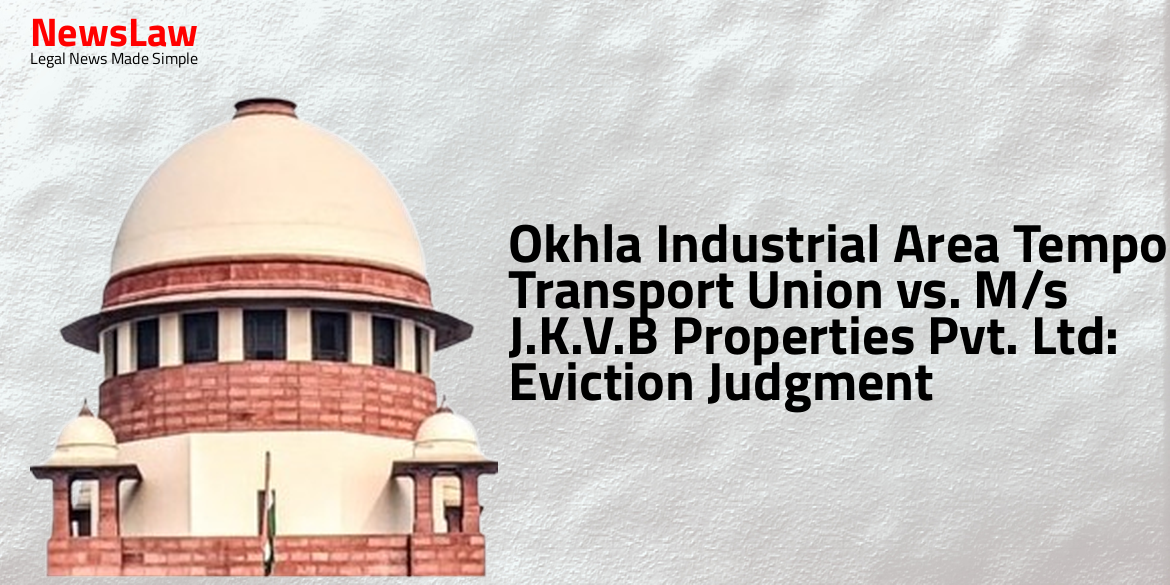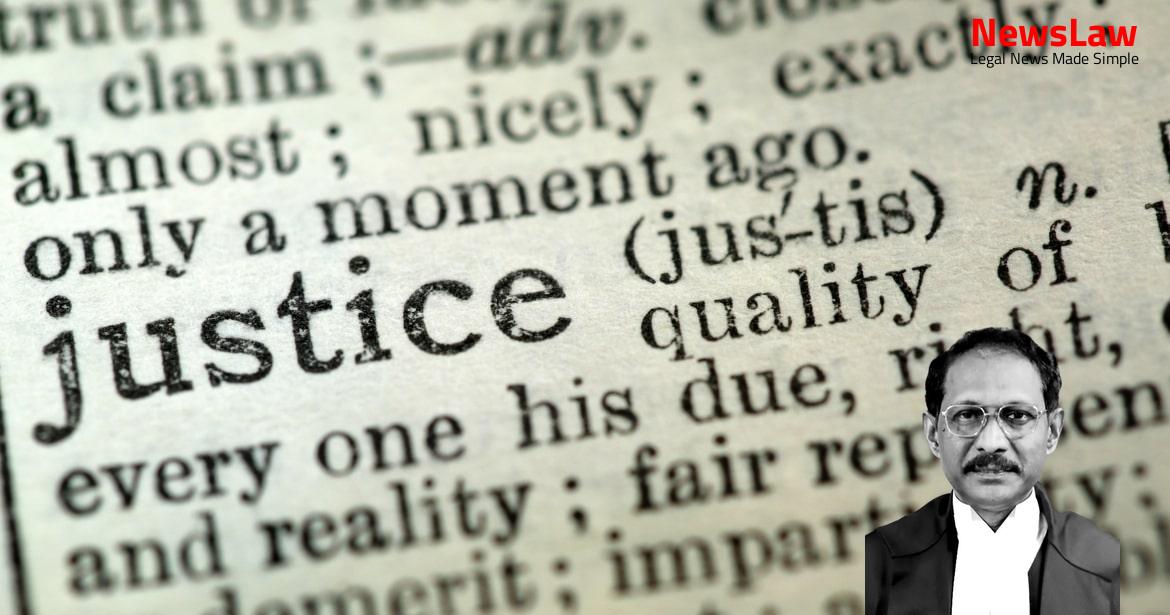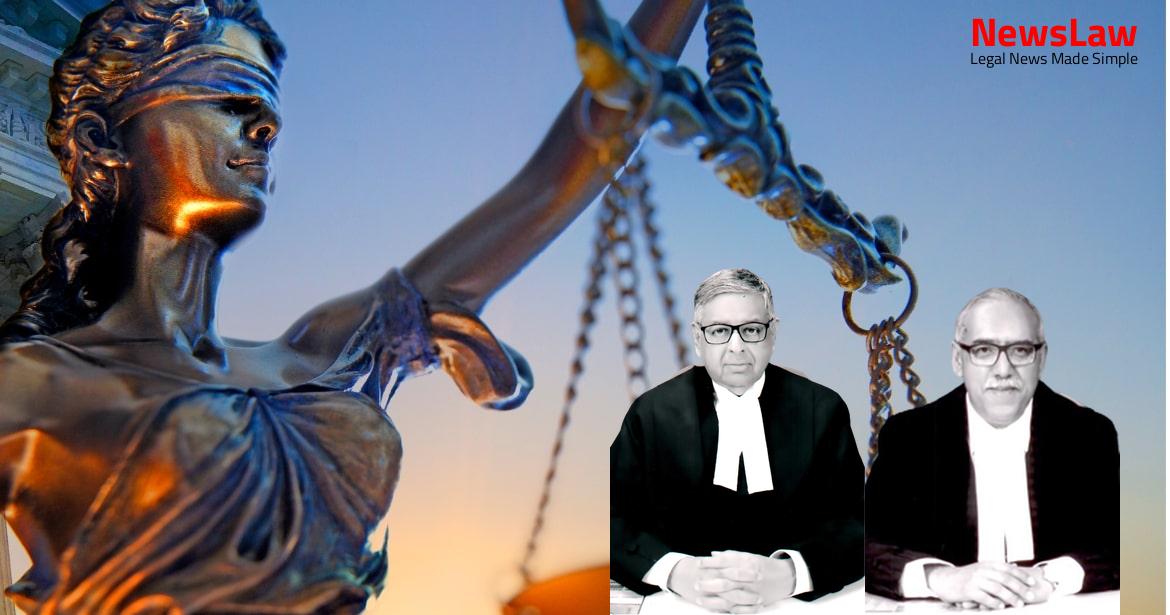Delve into a significant legal case where the court’s thorough analysis of public interest litigation is under scrutiny. This blog sheds light on the judicial review process, focusing on the nuances of the court’s interpretation and rulings. Stay informed about the evolving landscape of legal procedures and precedents.
Facts
- The guidelines for Basic Services to the Urban Poor (BSUP) and IHSDP were issued in December 2005, appointing urban local bodies as nodal agencies.
- A committee was constituted for spot inspection and status report submission regarding scheme implementation.
- Dereliction of duties by public officials and PMC in not paying contractors for actual work done was highlighted.
- Recommendations included allotting completed houses to original eligible beneficiaries under the PMAY scheme and demolishing houses beyond repair.
- Actions proposed in a meeting included technical valuation of work, determining financial irregularities, and recovering excess amounts paid to contractors.
- Collector Osmanabad directed recovery of excess amount paid, blacklisting contractors, initiating criminal prosecution, and allotting repairable houses under PMAY.
- New DPR plan under PMAY for construction and allotment of houses to eligible beneficiaries was to be prepared.
- Various irregularities, financial discrepancies, and diversion of funds were revealed in the implementation of housing schemes.
- Criminal PILs were filed against responsible officers and contractors for misappropriation of government funds.
- Proceedings were initiated against irregularities identified during spot inspections and joint measurements.
- Recovery of excess payments, blacklisting contractors, criminal proceedings, and compliance with PMAY guidelines were directed by authorities.
- Appellants involved in the construction project were found to have not performed their assigned tasks.
- Reports of poor quality work, incomplete construction, and irregularities in fund utilization were highlighted.
- Authorities lodged FIR and initiated criminal proceedings based on inspection findings.
- Municipality was tasked with implementing projects and selecting beneficiaries, but various irregularities and omissions were noted in the execution.
- Recent judgments of the Hon’ble Court necessitate setting aside the impugned order and remanding the matter back to the High Court for fresh consideration.
- The appellants were not heard, and they could have demonstrated to the High Court that they were not involved in the alleged offence.
- The court rejected criminal applications as there was no rationale for entertaining them.
- The High Court disposed of two public interest litigations and directed the Divisional Commissioner, Aurangabad, based on reports submitted to him.
Also Read: Electoral Malpractices in Mayor Election
Arguments
- Public interest litigation should be entertained for bona fide causes, not for aiding misguided individuals seeking publicity or wreaking vendetta on public officials or institutions.
- The court emphasized the need to keep out ‘busybodies’ who have no interest in matters of public interest.
- Such individuals masquerade as crusaders for justice and act in the name of Pro Bono Publico without protecting public or personal interests.
- There was a significant time gap between the pronouncement and uploading of reasons for the impugned judgment.
- The appellants were neither party respondents in the Public Interest Litigations nor were they heard, which is a violation of the principles of natural justice.
- Reference is made to the case of State of U.P. & Anr. v. Satya Narain Kapoor (dead) by Lrs. & Ors.
- Individuals in this category meddle with the judicial process either out of habit or improper motives, seeking notoriety or popularity, and potentially disrupting the wheels of administration.
- An Audit Committee was formed to audit the funds released for the housing scheme under the Mission.
- The Report of the committee highlighted the funds released by MHADA/state government to the municipality for the scheme.
- Funds received from the central government, recovery from beneficiaries, and interest accrued were detailed in the report.
- Public interest litigations were filed after the defect liability period, suggesting ulterior motives.
- Appellants sought anticipatory bail which was refused, leading them to approach the court.
- The appellants claim that the writ petitioners and public interest proceedings had personal motives.
- High Court’s directions were deemed politically motivated and malicious by the appellants.
- The appellants argue that they did not commit any illegality as per the tender document clauses.
- Specific fund allocations and recoveries were also highlighted in the arguments.
- The FIR was filed as a consequence of court orders.
- Petitions leading to the judgment were considered a misuse of public interest litigation.
- It was noted that neither the municipality nor the government initiated legal actions for recovery from the appellants.
- Lack of opportunity to be heard was emphasized as leading to grave prejudice for the appellants.
- The appellants claim that the writ petitioners were politically motivated councillors.
Also Read: Balancing Power and Transparency: Electoral Bonds Struck Down, Disclosure Mandated
Analysis
- The High Court did not initiate investigation or direct registration of an FIR by itself.
- Materials suggested serious irregularities in a housing scheme meant for economically disadvantaged sections.
- Reasons for public interest proceedings were justified based on reports and inquiries during the proceedings.
- The appellants’ grievance about lack of reasons from the High Court is justified.
- Directions for criminal prosecution were issued for irregularities in the housing scheme implementation.
- Preliminary inquiry may be conducted before registering an FIR if no cognizable offense is immediately apparent.
- Delay in publishing reasons caused prejudice to the appellants in presenting their special leave petitions.
- Reported irregularities in construction included sub-standard units and excess payments.
- The High Court’s directions to proceed with criminal prosecution and reconstruction were necessary in the context of severe irregularities.
- Non-participation of the appellants in the public interest proceedings did not vitiate the judgment.
- The High Court should have provided reasons for its operative directions.
- Immediate registration of an FIR is required if the information discloses a cognizable offense.
- Affidavit and reports indicated severe irregularities in the housing scheme, leading to excess payments and sub-standard construction.
- The High Court’s direction to proceed to the logical end meant addressing irregularities and reconstruction for beneficiaries.
- Public interest litigants had alleged mismanagement of a housing scheme involving a large number of dwelling units.
- The High Court’s delay in providing reasons for its order was noted, but the effect was not to prosecute immediately.
- Public interest litigation initially focused on protecting the fundamental rights of marginalized groups who are unable to approach the courts due to poverty, illiteracy, and ignorance.
- The High Court’s obligation to provide justice to disadvantaged and poor sections of society includes entertaining petitions from genuine social groups, NGOs, and social workers advocating for those deprived of basic rights.
- Public interest litigation aims to promote and vindicate public interest by addressing violations of constitutional or legal rights of large numbers of people who are economically or socially disadvantaged.
- Providing succor to deprived sections of society is recognized as a constitutional duty of the courts.
- The widows of Vrindavan are considered a socially disadvantaged class in need of empowerment and advocacy for social justice.
- Public interest litigation empowers economically weaker sections and those suffering from social disabilities.
- The judicial branch, like the political and executive branches, has the duty to protect the rights of every citizen and ensure dignified living for all.
- Allegations of cognizable offenses must prompt the lodging of an FIR, as per the Lalita Kumari v. Govt. of UP decision.
- Public interest litigation serves as a powerful tool in providing social justice and improving the conditions of millions belonging to deprived and vulnerable sections of society.
- Observations made by the High Court or this Court in this judgment should not restrict any arguments or defenses that the appellants may take in the criminal proceedings.
- Appeals are dismissed without any order on costs.
- The court’s opinion is that the appeals have to fail based on the findings.
Also Read: Recall of Resolution Plan Approval: Legal Analysis
Case Title: SHAIKH ANSAR AHMAD MD HUSAIN Vs. THE STATE OF MAHARASHTRA (2021 INSC 614)
Case Number: C.A. No.-000695-000695 / 2021



